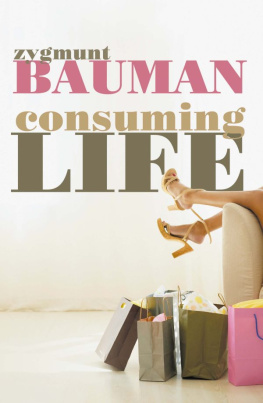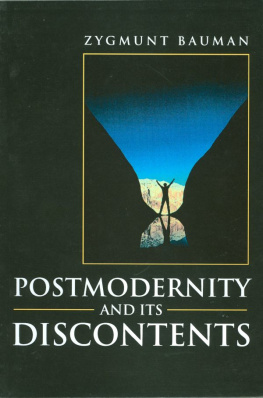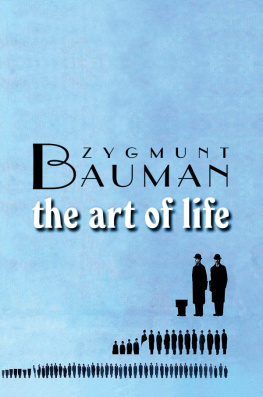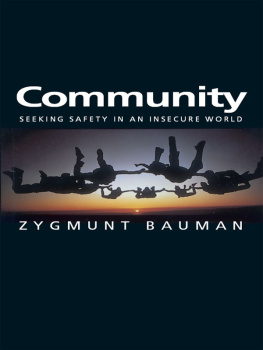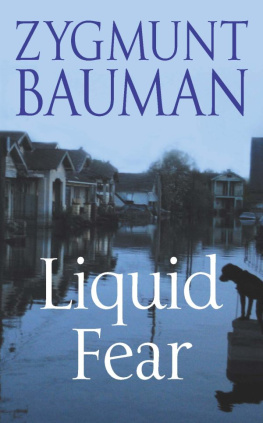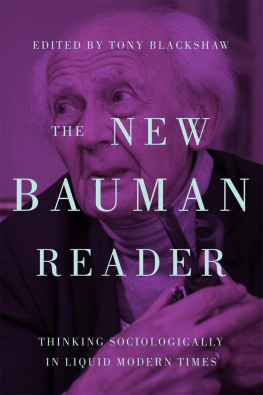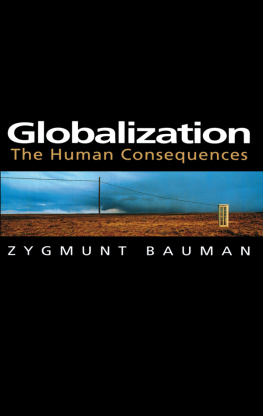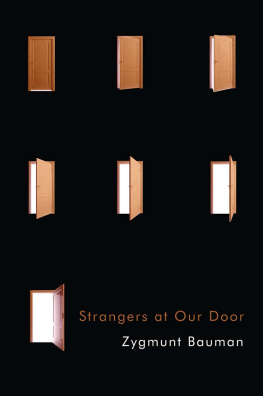Bauman - Consuming Life
Here you can read online Bauman - Consuming Life full text of the book (entire story) in english for free. Download pdf and epub, get meaning, cover and reviews about this ebook. City: Cambridge, year: 2008;2011, publisher: Wiley;Polity Press, genre: Romance novel. Description of the work, (preface) as well as reviews are available. Best literature library LitArk.com created for fans of good reading and offers a wide selection of genres:
Romance novel
Science fiction
Adventure
Detective
Science
History
Home and family
Prose
Art
Politics
Computer
Non-fiction
Religion
Business
Children
Humor
Choose a favorite category and find really read worthwhile books. Enjoy immersion in the world of imagination, feel the emotions of the characters or learn something new for yourself, make an fascinating discovery.
- Book:Consuming Life
- Author:
- Publisher:Wiley;Polity Press
- Genre:
- Year:2008;2011
- City:Cambridge
- Rating:5 / 5
- Favourites:Add to favourites
- Your mark:
- 100
- 1
- 2
- 3
- 4
- 5
Consuming Life: summary, description and annotation
We offer to read an annotation, description, summary or preface (depends on what the author of the book "Consuming Life" wrote himself). If you haven't found the necessary information about the book — write in the comments, we will try to find it.
Consuming Life — read online for free the complete book (whole text) full work
Below is the text of the book, divided by pages. System saving the place of the last page read, allows you to conveniently read the book "Consuming Life" online for free, without having to search again every time where you left off. Put a bookmark, and you can go to the page where you finished reading at any time.
Font size:
Interval:
Bookmark:

To Ann Bone,
editor supreme
Copyright Zygmunt Bauman 2007
The right of Zygmunt Bauman to be identified as Author of this Work has been asserted in accordance with the UK Copyright, Designs and Patents Act 1988.
First published in 2007 by Polity Press
Polity Press
65 Bridge Street
Cambridge CB2 1UR, UK.
Polity Press
350 Main Street
Malden, MA 02148, USA
All rights reserved. Except for the quotation of short passages for the purpose of criticism and review, no part of this publication may be reproduced, stored in a retrieval system, or transmitted, in any form or by any means, electronic, mechanical, photocopying, recording or otherwise, without the prior permission of the publisher.
ISBN-13: 978-07456-3979-6
ISBN-13: 978-07456-4002-0 (pb)
ISBN-13: 978-07456-5583-3 (Single-user ebook)
ISBN-13: 978-07456-5582-6 (Multi-user ebook)
A catalogue record for this book is available from the British Library.
Every effort has been made to trace all copyright holders, but if any have been inadvertently overlooked the publishers will be pleased to include any necessary credits in any subsequent reprint or edition.
For further information on Polity, visit our website: www.polity.co.uk
Introduction
Or, the most closely guarded secret of the society of consumers
There is no worse deprivation, no worse privation, perhaps, than that of the losers in the symbolic struggle for recognition, for access to a socially recognized social being, in a word, to humanity.
Pierre Bourdieu, Pascalian Meditations
Consider three cases, picked up at random, of the fast changing habits of our increasingly wired up, or more correctly increasingly wireless , society.
Case One
On 2 March 2006, the Guardian announced that in the past 12 months, social networking has gone from being the next big thing to the thing itself. Visits to the website MySpace, a year earlier the unchallenged leader in the newly invented medium of social networking, grew sixfold, while its rival website Spaces.MSN scored eleven times more hits than the year before, and visits to Bebo.com multiplied sixty-one times.
Highly impressive growth indeed even if the amazing success of Bebo, a newcomer to the internet at the time of reporting, might yet prove to be a flash in the pan: as an expert on internet fashions warns, at least 40 per cent of this years top ten will be nowhere this time next year. The launch of a new social networking site, he explains, is like opening of the latest uptown bar (just because it is the latest, a brand new or freshly overhauled and relaunched outfit, such an uptown bar would attract huge traffic before receding as certainly as the onset of the next days hangover, passing its magnetic powers over to the next latest in the never relenting relay race of the hottest, the latest talk of the town, the place where everybody who is somebody must be seen).
Once they get a foothold in a school or a physical or electronic neighbourhood, social networking websites spread with the speed of an extremely virulent infection. In no time, theyve stopped being just one option among many and turned into the default address for swelling numbers of young men and women. Obviously, the inventors and promoters of electronic networking have struck a responsive chord or touched a raw and tense nerve which has long waited for the right kind of stimulus. They may rightly boast of having satisfied a real, widespread and urgent need. And what might that need be? At the heart of social networking is an exchange of personal information. Users are happy to reveal intimate details of their personal lives, to post accurate information and to share photographs. It is estimated that 61 per cent of UK teenagers aged thirteen to seventeen have a personal profile on a networking site enabling socializing online.
In Britain, a country where the popular use of cutting-edge electronic facilities lags cyberyears behind the Far East, the users can still trust social networking to manifest their freedom of choice, and even believe it to be a means of youthful rebellion and self-assertion (a supposition made all the more credible by the panic alarms which their unprecedented, web-induced and web-addressed zeal for self-exposure triggers among their security-obsessed teachers and parents day in, day out, and by the nervous reactions of the headmasters who ban the likes of Bebo from the school servers). But in South Korea, for instance, where most social life is already routinely electronically mediated (or rather where social life has already turned into an electronic life or cyber life, and where most social life is conducted primarily in the company of a computer, iPod or mobile, and only secondarily with other fleshy beings), it is obvious to the young that they dont have even so much as a sniff of choice; where they live, living social life electronically is no longer a choice, but a take it or leave it necessity. Social death awaits those few who have as yet failed to link up into Cyworld, South Koreas cybermarket leader in the show-and-tell culture.
It would be a grave mistake, however, to suppose that the urge towards a public display of the inner self and the willingness to satisfy that urge are manifestations of a unique, purely generational, age-related urge/addiction of teenagers, keen as they naturally tend to be to get a foothold in the network (a term rapidly replacing society in both social-scientific discourse and popular speech) and to stay there, while not being quite sure how best to achieve that goal. The new penchant for public confession cannot be explained by age-specific factors not only by them at any rate. Eugne Enriquez recently summed up the message to be derived from the fast growing evidence gathered from all sectors of the liquid modern world of consumers:
Provided one does not forget that what was previously invisible everybodys share of the intimate, everybodys inner life is now called on to be exposed on the public stage (principally on TV screens but also on the literary stage), one will comprehend that those who care for their invisibility are bound to be rejected, pushed aside, or suspected of a crime. Physical, social and psychical nudity is the order of the day.
The teenagers equipped with portable electronic confessionals are simply apprentices training and trained in the art of living in a confessional society a society notorious for effacing the boundary which once separated the private from the public, for making it a public virtue and obligation to publicly expose the private, and for wiping away from public communication anything that resists being reduced to private confidences, together with those who refuse to confide them. As Jim Gamble, the head of a watchdog agency, admitted to the Guardian , it represents everything you see in the school playground the only difference is that in this playground, there are no teachers or police or moderators to keep an eye on whats going on.
Case Two
On the same day, though on quite a different and thematically unconnected page presided over by another editor, the Guardian informed its readers that computer systems are being used to snub you more effectively, depending on your value to the company youre calling. Computer systems mean that records can be kept of customers, marking them from 1, meaning first-class clients who are answered immediately the moment they call and are promptly put through to a senior agent, down to 3 (the pond life, as they have been summarily branded in the company lingo), who are put at the back of the queue and when they are finally put through, they are connected to an agent at the bottom of the heap.
Font size:
Interval:
Bookmark:
Similar books «Consuming Life»
Look at similar books to Consuming Life. We have selected literature similar in name and meaning in the hope of providing readers with more options to find new, interesting, not yet read works.
Discussion, reviews of the book Consuming Life and just readers' own opinions. Leave your comments, write what you think about the work, its meaning or the main characters. Specify what exactly you liked and what you didn't like, and why you think so.

